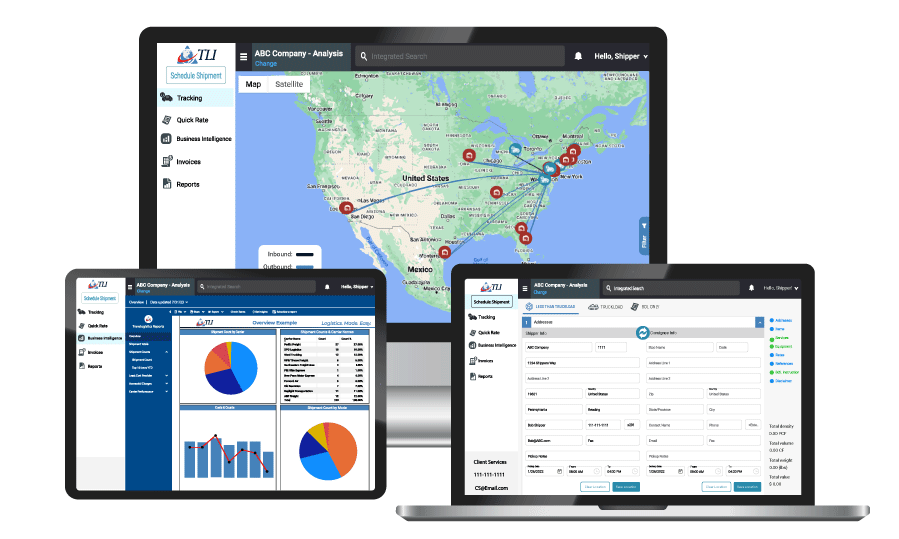In today’s fast-paced supply chain Moving freight isn’t just about the routes or trucks nowadays. It’s all about flexibility, data, and having the appropriate systems in place to deal with the unexpected. Your logistics provider should provide more than the standard freight services, whether you are manufacturing company that must ship products on time or a retailer who has to manage multiple deliveries per day. They must provide transparency, control and trust.

Image credit: translogisticsinc.com
That’s where modern freight brokerage services and technology-driven 3PL providers step in to change the game.
The Modern Freight Broker is More Than an Middleman
In the past, freight brokers were seen as people who connected shippers and carriers. The modern freight broker has evolved to be an integral partner that manages the complicated logistics of transportation for their clients. They negotiate better rates, vet reliable carriers solve disruptions, and help avoid expensive delays.
The right freight broker will help you save not just money, but also from the logistical issues that can hurt the bottom line.
Translogistics, Inc., or TLI, is redefining the relationship between companies and their customers. By offering multimodal freight brokerage services, they allow businesses to shift between parcel, LTL (less-than-truckload), and volume LTL shipments depending on urgency, budget, or customer needs. The ability to adapt is crucial more than ever.
3PL Providers: The Additional layer of strategy You Didn’t Even Know You Required
It is worth considering using a 3PL If you work with several carriers and are juggling your invoices. You might also be tracking shipments manually or managing claims on the spreadsheet. Third-party logistical partners can help you reduce time by assisting with these tasks that are tedious.
A reputable 3PL offers more than outsourced services; they bring structure as well as strategy and knowledge. They look at your shipping patterns, suggest smarter solutions, and bring technology-driven processes to your logistics department. You’re not just reacting to problems, you’re also stopping the occurrence of problems. In a field where efficiency and transparency are a must, it’s the software behind the scenes which often make the greatest difference.
The role of a Transportation Management System
Imagine the Transportation Management System as the control mission of your shipping. It’s your digital brain, which allows you to track how you manage and optimize each of your shipping on one platform. A TMS gives you the control and visibility that you had been missing. It’s capable of everything from creating Bills of Lading to viewing the real-time rates of carriers.
Translogistics ViewPoint TMS for example, was designed with these purposes in mind. top of mind. It does not just compare rates across different modes, but also includes the use of AI-powered drag-and-drop to enter shipment data, eliminating manual typing that can slow teams down. This is a prime example of how logistics technology is evolving to allow faster, cleaner and more accurate operations.
The Partnership is the most important factor to success
Logistics doesn’t have to be just about systems and services. It’s also about people. It’s important to have a team who understands the risk involved when a delivery is delayed or the carrier is unable to deliver. This is the reason choosing a 3PL or freight broker need not be a solely transactional option. It’s a strategic one.
Look for a partner who listens, adapts, and invests in the technology that keeps your supply chain running smoothly. A partner who treats your cargo as fast and with the same care that you do. A well-designed support system can transform the chaos of freight into a productive operation, and help your business expand. Modern logistics involves more than just the process of moving freight. It’s about being more efficient.